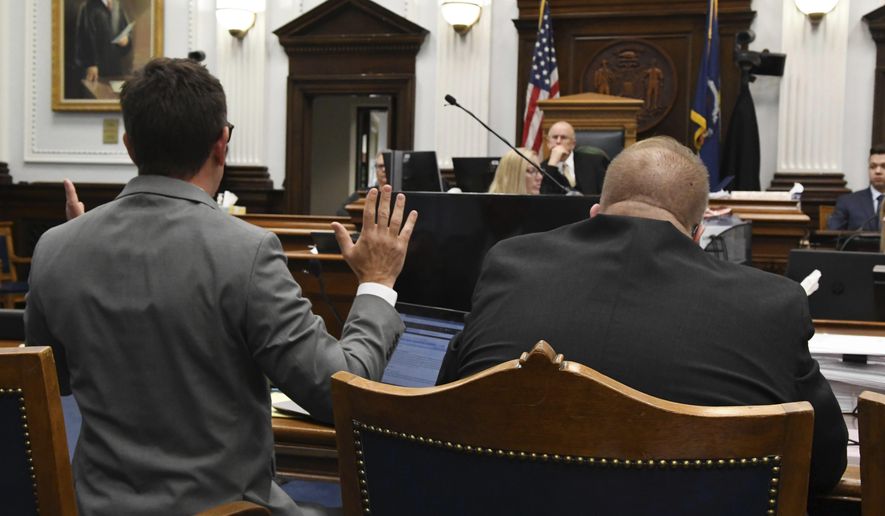OPINION:
The recently concluded Kyle Rittenhouse case is not the only reminder that prosecutors need to be carefully watched. Over the last 50 years, America’s courtrooms have become a battleground upon which some of society’s most contentious issues are settled, whether they belong there or not.
The government — which includes judges, attorneys general and prosecutors — is supposed to make justice its primary concern. It has the power. Proof of guilt is still required for conviction. The presumption of innocence remains at the forefront of any trial. Or at least it should. It’s hard to say what happened in Wisconsin, where the district attorney withheld key evidence from Mr. Rittenhouse’s attorney and went so far as to point at the jury the weapon Mr. Rittenhouse used to defend himself against three assailants.
The Rittenhouse case is just one of many where the government, for political or economic reasons, brought to the bar cases that never should have been tried by twisting and pulling on the meaning of the law until it looked like taffy.
Several years ago, then-Oklahoma Attorney General Mike Hunter decided to go after the pharmaceutical industry. He believed its marketing practices had triggered the opioid crisis with which the state now had to contend in violation of the state’s public nuisance law by claiming the drugs were less addictive and deadly than some say they have proven to be.
The other companies targeted chose to settle, but Johnson & Johnson, the pharmaceutical giant whose products can be found in just about every household in America, decided to its credit to litigate, leading to the first major lawsuit against an opioid manufacturer to make it to trial.
Mr. Hunter originally asked for damages totaling $17 billion. The judge in the court of original jurisdiction, Thad Balkman, in a non-jury trial, found in favor of the plaintiff and ordered J&J to pay $465 million into a state fund created to combat the opioid crisis.
J&J appealed and, earlier last month, won when the Oklahoma Supreme Court found, by a vote of 5 to 1, that the attorney general’s office and the outside lawyers involved had misused the public nuisance law in bringing and arguing the case.
“We hold that the district court’s expansion of public nuisance law went too far,” Justice James Winchester wrote for the majority. “Oklahoma public nuisance law does not extend to the manufacturing, marketing, and selling of prescription opioids.”
The deep pockets of corporate America have been a target of the left since the 1930s, if not before. It can’t stand to see all the money being used to manufacture goods people all over the world want, to see living standards raised for the working class, and for retirees and others invested in those companies to see good returns on their investments. They want everyone dependent on the government and are determined to take through other means what they cannot extract from the job creators in taxes.
The twisting of a public nuisance law to secure funding for anti-drug efforts in Oklahoma is, at least as far as the standards of jurisprudence go, as offensive as the attempt by a Wisconsin prosecutor to eviscerate Kyle Rittenhouse’s right to defend himself in the middle of a riot. The law may be an ass, as Mr. Bumble said, but we cannot allow it to be used as a cudgel against the citizens and interests it is meant to protect.




Please read our comment policy before commenting.